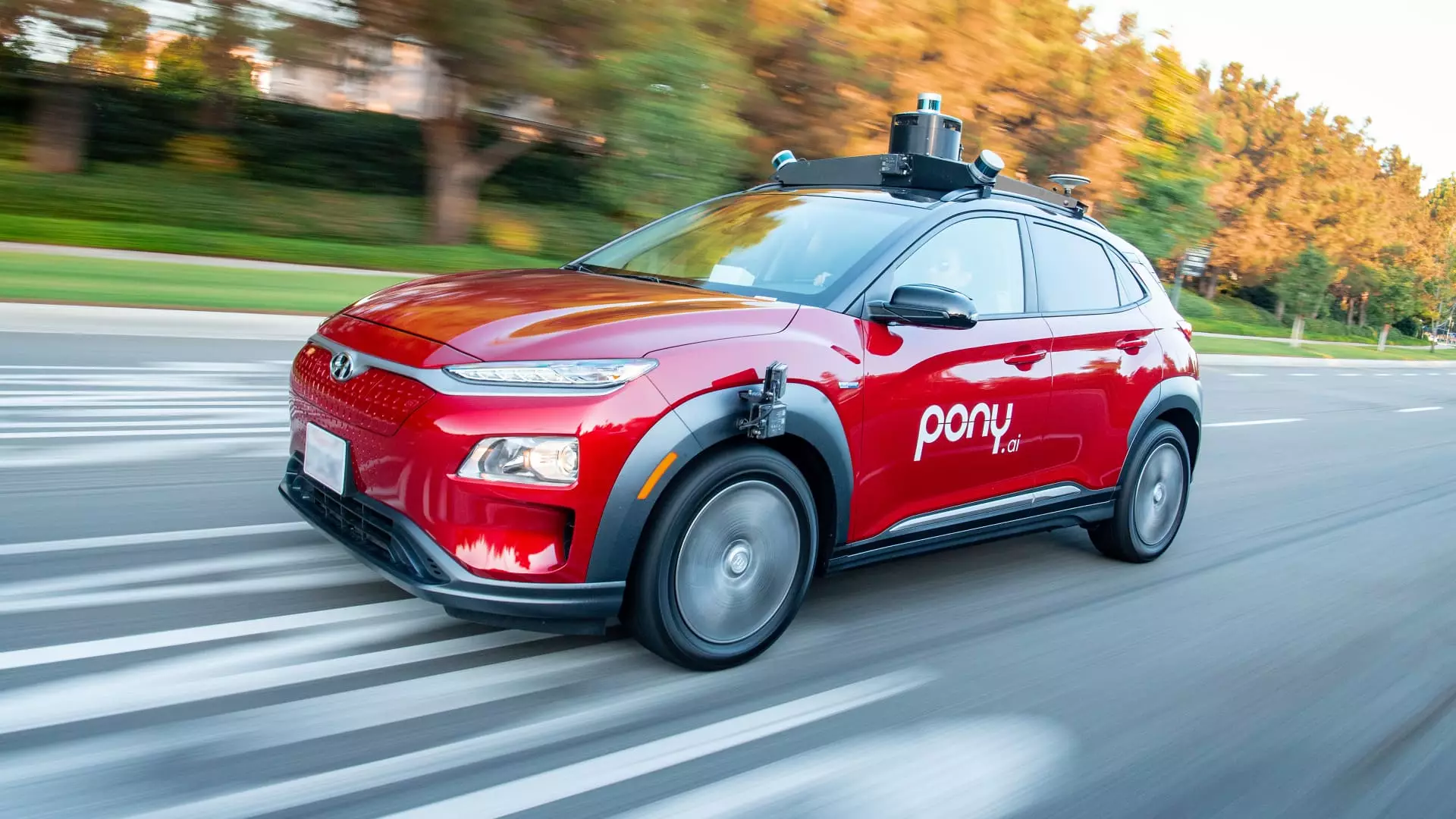In a groundbreaking move that could reshape urban mobility, Pony.ai, a Chinese start-up renowned for its innovations in autonomous driving technologies, has joined forces with Tencent Cloud. This partnership aims to develop cutting-edge robotaxi services, seamlessly integrating them into Tencent’s expansive ecosystem, which includes its flagship messaging app, WeChat. As Pony.ai’s CEO, James Peng, articulated during the Shanghai Auto Show, this collaboration leverages Tencent’s vast user base and robust cloud capabilities, indicating a strategic alignment of complementary strengths. The potential impact of this partnership is extraordinary, challenging traditional taxi services and pushing the boundaries of autonomous vehicle technologies further into the mainstream.
Pony.ai’s ambitious goal of providing robotaxi services through WeChat is particularly noteworthy. With over 1 billion active users, WeChat is often described as a ‘super app,’ encompassing a myriad of services from instant messaging to e-commerce. This provides an unprecedented platform for Pony.ai to offer its services to a broad audience, potentially redefining how urban dwellers interact with transportation. By embedding robotaxis in everyday applications, they can elevate the user experience while increasing the visibility and accessibility of autonomous vehicles.
Technological Synergy and Innovation
The synergy between Pony.ai and Tencent extends beyond user access; it significantly involves collaborative innovation across various technological domains. The partnership will encompass a range of services, including cloud resources, mapping infrastructures, and advanced information security measures. This multifaceted collaboration allows both companies to push the envelope of what is possible in autonomous driving. As described in Tencent’s official communications, this strategic partnership represents a fresh beginning for collaborative innovation in the realm of intelligent mobility.
The integration of Pony.ai’s cutting-edge L4-level autonomous vehicle technology into Tencent’s existing cloud and mapping services positions both companies at the forefront of the autonomous driving revolution. L4 autonomy, which permits drivers to disengage from monitoring tasks in designated areas, stands as a significant leap forward from L3 systems, where driver oversight remains necessary. This technological advancement opens a new chapter for public acceptance of autonomous vehicles and, by extension, urban transportation as a whole.
Market Dynamics and Expansion Challenges
Pony.ai’s ascent is bolstered by strategic regulatory victories, including securing China’s first permit for fare-based, fully driverless taxi services in key sectors of Shenzhen—home to Tencent. However, as Pony.ai scales its operations, it faces looming challenges associated with geopolitical tensions, particularly between China and the United States. The firm is weighing a potential secondary listing outside the U.S. due to rising concerns about the delisting of Chinese firms from American stock exchanges. This strategic consideration may reflect not just financial pragmatism but a need to safeguard the company’s growth trajectory amid uncertain regulatory environments.
Despite these challenges, Pony.ai’s technological prowess and strategic positioning signal resilience and adaptability. By collaborating with Tencent, they not only enhance their capabilities but also mitigate some risks associated with their expansion strategy. In the autonomous driving sector, where technological development can be both costly and time-consuming, forming partnerships that enable resource sharing and mutual growth is essential.
Societal Implications and the Future of Urban Mobility
As urban centers become increasingly congested, the emergence of autonomous robotaxis holds the promise of redefining urban mobility. With the integration of services into familiar platforms like WeChat, Pony.ai has the opportunity to stimulate a cultural shift in how residents perceive and utilize transportation solutions. Moreover, the sustainability of urban environments can be enhanced through the adoption of autonomous vehicles, potentially reducing emissions connected with conventional transport modes.
However, the societal implications of such rapid technological integration warrant thoughtful consideration. As cities invest in infrastructure supporting autonomous vehicles, a holistic approach to urban planning is essential. Engaging with communities and ensuring that vulnerable populations are not left behind in the transportation revolution must be prioritized. The advent of autonomous driving technologies is not merely about enhancing convenience; it is about fostering inclusive, sustainable cities where mobility is accessible to all.
Thus, the collaboration between Pony.ai and Tencent not only paves the way for a transformative urban mobility future but also highlights the broader responsibilities held by technology firms in shaping societal landscapes. Through innovation, collaboration, and a commitment to community engagement, the vision of seamless, autonomous transportation may soon be realized.

